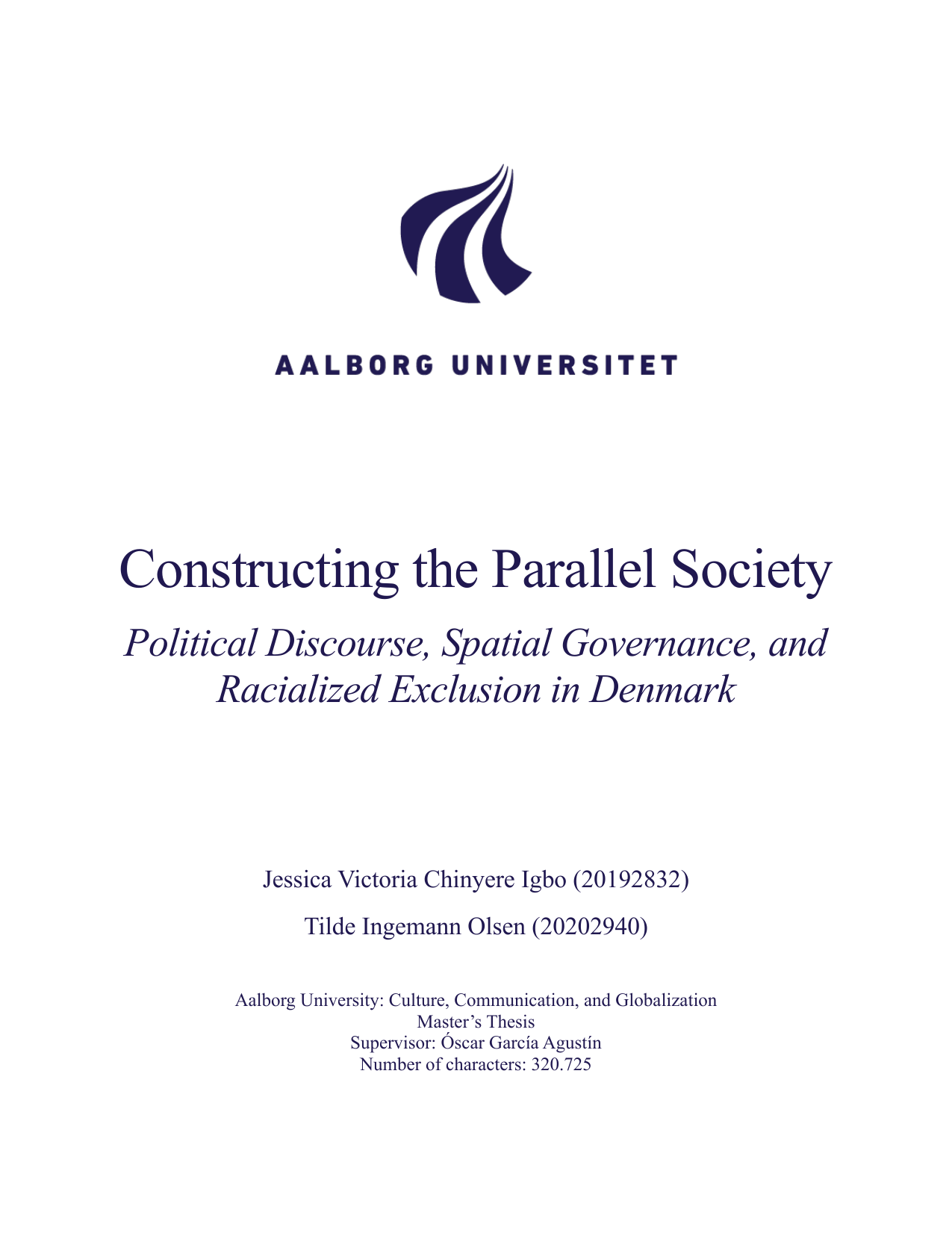
Constructing the Parallel Society: Political Discourse, Spatial Governance, and Racialized Exclusion in Denmark
Term
4. term
Publication year
2025
Submitted on
2025-06-02
Pages
134
Abstract
This thesis offers a critical investigation into how Danish political discourse constructs immigrant communities as cultural outsiders and spatial threats, with a particular focus on the “Ghetto Package” of 2018 and its subsequent discursive reframing in the 2021 “Parallel Society Agreement”. While officially aimed at promoting integration and social cohesion, these policies disproportionately target racialized urban areas through mechanisms such as forced relocation, ethnic quotas, and spatial reclassification. Rather than assessing policy efficacy, this study interrogates how language operates as a tool of governance, producing and legitimizing structural exclusion under the guise of neutrality and pragmatism. Grounded in Critical Discourse Studies (CDS), the thesis draws on Norman Fairclough’s three- dimensional model and Teun van Dijk’s socio-cognitive approach to examine the interplay between text, discursive practice, and social structure. By analyzing a comprehensive empirical dataset that includes political speeches, policy documents, party platforms, and parliamentary debates, the thesis uncovers how dominant narratives about “ghettos”, “parallel societies”, and “non-Western immigrants” mobilize civilizational binaries, moralized belonging, and racialized spatial imaginaries. These discursive strategies contribute to a broader ideological project that redefines national identity in exclusionary terms, aligning integration with cultural conformity and ideological loyalty. To enhance the explanatory power of CDS, the study incorporates theoretical insights from postcolonial theory (Said, Bhabha), urban sociology (Wacquant), and critical race studies (Bonilla-Silva). This interdisciplinary framework foregrounds the racialized and colonial dimensions of Danish integration discourse, revealing how systemic discrimination is naturalized through bureaucratic language, statistical classifications, and spatial metaphors. The thesis also engages the 2025 legal opinion of Advocate General Tamara Ćapeta in case C-417/23, which declared key aspects of Denmark’s housing legislation to constitute direct ethnic discrimination. This intervention underscores the urgent need to critically examine how policy language constructs categories of deviance and belonging, and how such constructions acquire legal and institutional force. Ultimately, the study shows how political discourse functions as both a mirror and a mechanism of structural power, shaping not only how immigrant communities are perceived but also how they are governed. By revealing the ideological work performed by concepts like “parallel societies”, the thesis contributes to scholarly and public debates about race, democracy, and the role of language in contemporary welfare states. Beyond the Danish context, it offers insights into broader European dynamics where integration has become a battleground for competing visions of nationhood, belonging, and pluralism.
Keywords
Documents
